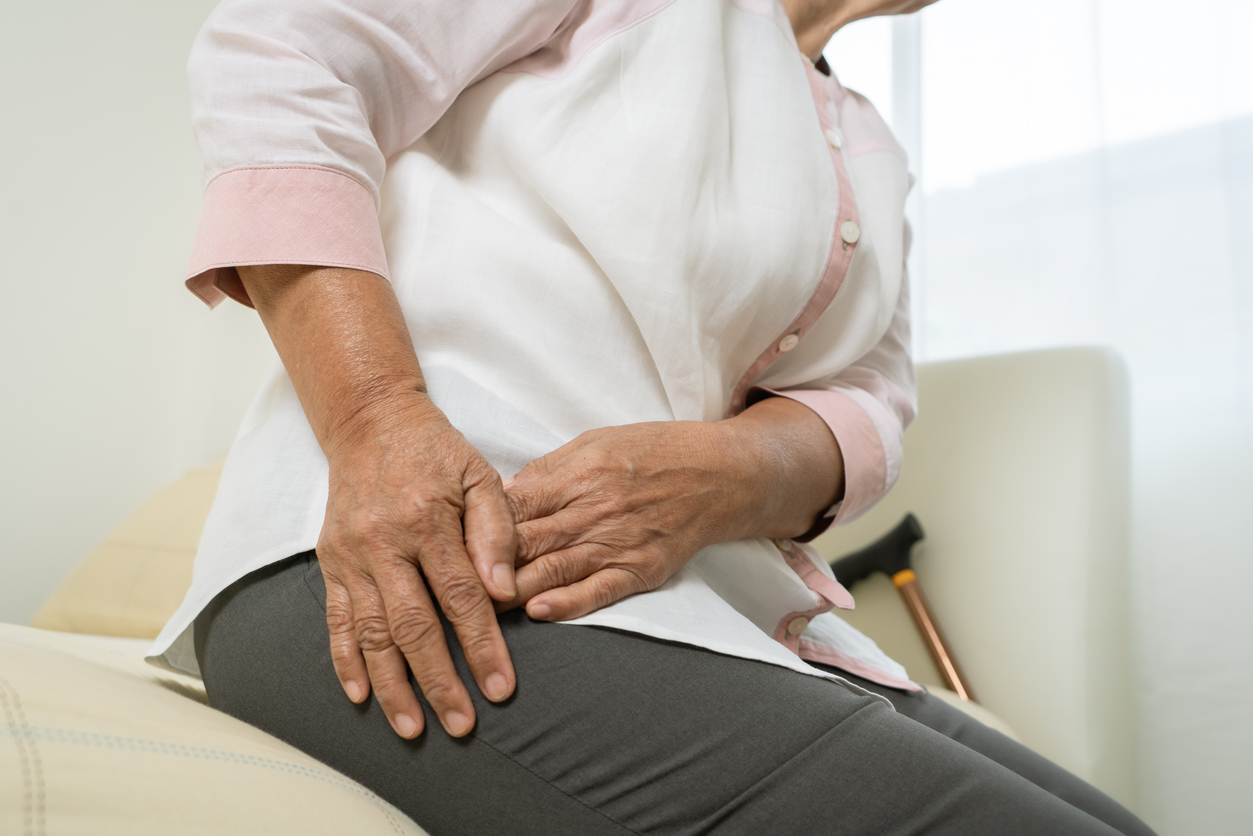
Is hip, groin, and upper leg pain impeding your everyday life? Do you think you have arthritis in the hip joint? Learn more about hip arthritis, how it can impact your activities of daily living, and why treatment is so important from your orthopedic surgeon in Bismarck, ND.
Causes of Hip Arthritis
Arthritis is one of the most debilitating and progressive chronic conditions of the bones and joints. As bearers of a significant portion of your body weight as you stand, walk, run, and more, the hip joints take a significant beating.
Over time, this burdensome work can result in osteoarthritis, more commonly known as wear and tear arthritis. The protective cartilage on bone ends wears down, causing bone-on-bone rubbing and its consequent discomfort. The joints may become increasingly tender, red, and even deformed looking. Some people even hear grinding and popping noises in their arthritic hip.
Additional causes or contributing factors for hip arthritis include:
- Sports injuries
- Falls
- Motor vehicle accidents
- Obesity
- Rheumatoid arthritis, an autoimmune disorder
- Aging
- Gender (female)
Impact of Hip Arthritis on Activities of Daily Living
More than 80 percent of adults who have hip arthritis struggle with ordinary movements, such as walking, going up and downstairs, getting in and out of a car, lifting objects, and more.
Here are some particular movement and positional impacts. Some of them may be familiar to you:
- Impaired balance, especially on uneven surfaces
- Difficulty climbing and descending stairs
- Inability to stoop and kneel even for short periods of time
- Difficulty lifting and carrying even a minimal amount of weight
With these problems, many people withdraw socially and even struggle with the ordinary tasks of bathing, toileting, washing dishes, doing laundry, and caring for the lawn and garden. Accordingly, the pain and reduced mobility eliminate or reduce the ability to be employed, engage in favorite hobbies, or play sports.
What You Can Do About Hip Arthritis
The most important thing you can do for hip arthritis and for your day-to-day life is to consult with an experienced orthopedic surgeon. While many people think that consultation with a surgeon automatically means hip replacement surgery, this simply is not true.
When you see a bone and joint doctor and specify your symptoms, they will examine you, review your medical history, and take special digital X-rays of your hip. If indeed you do have osteoarthritis, there are several treatment options, many of which do not include surgery. In fact, the sooner you start on a custom-made treatment plan, the more likely you are to avoid, or postpone, surgery.
Here are some common strategies that the experts at The Bone & Joint Center recommend to control hip arthritis and improve your quality of life, mobility, and independence:
- Use an assistive device, such as a cane or walker, to correct your balance, provide support as you walk, and ultimately, avoid dangerous falls.
- Start physical therapy to improve range of motion and balance, and strengthen the muscles that support the hips and lower extremities.
- Exercise regularly with light aerobic activities, such as swimming, aquatic exercise, biking, and walking.
- Take over-the-counter pain medications, such as ibuprofen.
- Use joint supplements, such as glucosamine, to increase flexibility and reduce pain.
- Apply heat or ice, as needed.
- Lose weight.
- Stop smoking.
- Don’t overdo it. Instead, listen to your body and rest when you need it.
Minimize the Effects of Hip Arthritis
You can reduce the impact of hip arthritis on your daily life with the help of orthopedic surgeons, Dr. Timothy Bopp and Dr. Brian Dahl. They are the in-house experts on hip disorders and treatments at The Bone & Joint Center in Bismarck, ND.
Contact us for a consultation today. Call (800) 424-2663 or (701) 946-7500 to set up an appointment. We look forward to helping you stay happy and active.

